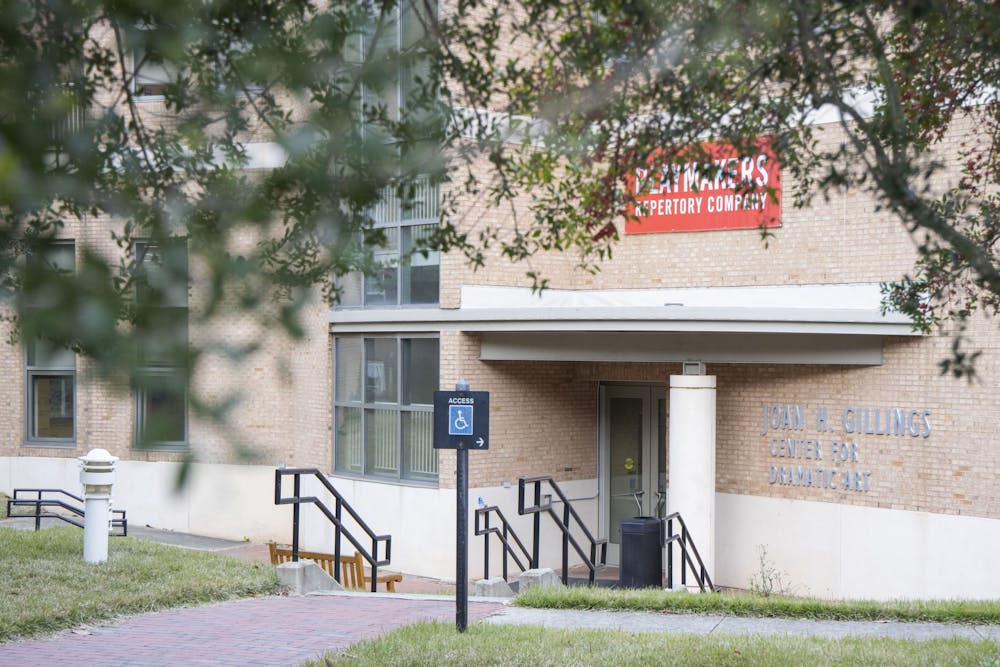A UNC social science graduate student was blocked from parking in the last available disability spot next to the Paul Green Theatre when going to see PlayMakers Repertory Company's "Dairyland" on Oct. 20. The spot was reserved for Thomas S. Kenan III, UNCSA Board of Trustees member and UNC alumnus who has a disability and a disability placard.
The student could not park there because of a laminated sign taped to the top of an orange traffic cone.
In accordance with compliancy standards set in the Americans with Disabilities Act, UNC reserves a minimum of two percent of spots in every campus parking lot for disability spots. However, the practice of reserving spaces for UNC dignitaries, like Kenan, with specific disability needs limits the number of these spots available to students and visitors with disabilities.
“I ended up going to the parking deck that’s nearby and walking over. But, as I was walking, I kept thinking, ‘This is so unfair, I can’t believe this is happening,'” said the source, who requested to remain anonymous and has a disability and a disability placard.
Adam Versényi, the chairperson of Dramatic Art for PlayMakers Repertory Company, said the practice of reserving disability spaces has been done before.
“PlayMakers has reserved this spot and others for specific use at different times to accommodate the needs and priorities of the Company and the Department of Dramatic Art,” he said in an email.
PlayMakers also has the option of converting service permit spots to disability spots next to the theater on Country Club Road, Versényi said.
“I don't think that we were creating a situation where anyone who has a valid disability permit would not have been able to find a parking spot,” he said.
Cheryl Stout, the director of UNC Transportation and Parking, said in order for a department to get a spot reserved, they have to make a request through her department, and if approved it would then be marked with a sign and traffic cone. Specific reservation requests — no matter the level of need an individual has — must go through the transportation department.



